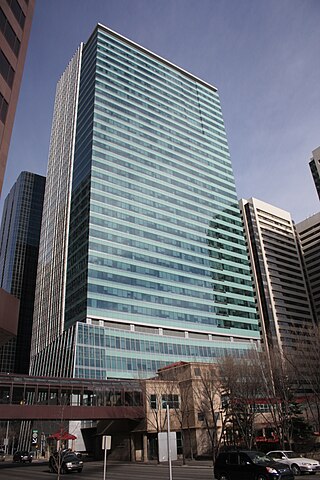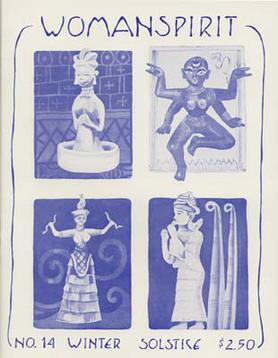
Lesbian feminism is a cultural movement and critical perspective that encourages women to focus their efforts, attentions, relationships, and activities towards their fellow women rather than men, and often advocates lesbianism as the logical result of feminism. Lesbian feminism was most influential in the 1970s and early 1980s, primarily in North America and Western Europe, but began in the late 1960s and arose out of dissatisfaction with the New Left, the Campaign for Homosexual Equality, sexism within the gay liberation movement, and homophobia within popular women's movements at the time. Many of the supporters of Lesbianism were actually women involved in gay liberation who were tired of the sexism and centering of gay men within the community and lesbian women in the mainstream women's movement who were tired of the homophobia involved in it.

Liquefied natural gas (LNG) is natural gas (predominantly methane, CH4, with some mixture of ethane, C2H6) that has been cooled down to liquid form for ease and safety of non-pressurized storage or transport. It takes up about 1/600th the volume of natural gas in the gaseous state at standard conditions for temperature and pressure.
Feminist separatism is the theory that feminist opposition to patriarchy can be achieved through women's separation from men. Much of the theorizing is based in lesbian feminism.

TC Energy Corporation is a major North American energy company, based in the TC Energy Tower building in Calgary, Alberta, Canada, that develops and operates energy infrastructure in Canada, the United States, and Mexico. The company operates three core businesses: Natural Gas Pipelines, Liquids Pipelines and Energy.

Kitimat is a district municipality in the North Coast region of British Columbia, Canada. It is a member municipality of the Regional District of Kitimat–Stikine regional government. The Kitimat Valley is part of the most populous urban district in northwest British Columbia, which includes Terrace to the north along the Skeena River Valley. The city was planned and built by the Aluminum Company of Canada (Alcan) during the 1950s. Its post office was approved on 6 June 1952.
Political lesbianism is a phenomenon within feminism, primarily second-wave feminism and radical feminism; it includes, but is not limited to, lesbian separatism. Political lesbianism asserts that sexual orientation is a political and feminist choice, and advocates lesbianism as a positive alternative to heterosexuality for women as part of the struggle against sexism.

The Furies Collective was a short-lived commune of twelve young lesbian separatists in Washington, D.C., in 1971 and 1972. They viewed lesbianism as more political than sexual, and declared heterosexual women to be an obstacle to the world revolution they sought. Their theories are still acknowledged among feminist groups.
FortisBC is a British Columbia based regulated utility that provides natural gas and electricity. FortisBC has approximately 2,600 employees serving more than 1.2 million customers in 135 B.C. communities and 58 First Nations communities across 150 Traditional Territories.
Papua New Guinea has exported liquefied natural gas (LNG) since 2014. The LNG sector is important to PNG's economy with US$2.95 billion in exports in 2020, and accounting for 5.25% of the GDP in 2019. On a global scale, PNG is a minor player, with 0.08% of world reserves In 2020, PNG was ranked 16th on the list of gas exporting countries.
Natural gas was Canada's third largest source of energy production in 2018, representing 22.3% of all energy produced from fuels in the country. By contrast, the share of fuel-based energy production from natural gas in 2013 was 17.0%, indicating a growth rate of approximately 1.06% per year.
Bradwood Landing was a proposed terminal for receiving liquefied natural gas (LNG) and converting the liquid back into a gas for transport via pipeline in the U.S. state of Oregon. The site of the development, which declared Chapter 7 bankruptcy in 2010 May, was on the Columbia River, east of Astoria.
Oregon LNG is an American energy company whose sole project was a proposal to build a bi-directional liquefied natural gas (LNG) production, shipping, and receiving hub and a natural gas pipeline in northwest Oregon. Oregon LNG is controlled by the US conglomerate Leucadia National Corporation, listed on the New York Stock Exchange. The Oregon LNG Project announced that it was ceasing operations on 15 April 2016.
The Jordan Cove Energy Project was a proposal by Calgary-based energy company Pembina to build a liquefied natural gas export terminal within the International Port of Coos Bay, Oregon. The natural gas would have been transported to the terminal by the Pacific Connector Gas Pipeline. The proposal has been met with objections from landowners, Tribes, and commercial entities since 2010 and was cancelled in late 2021.
Julia Penelope was an American linguist, author, and philosopher. She was part of an international movement of critical thinkers on lesbian and feminist issues. A self-described "white, working-class, fat butch dyke who never passed," she started what she called "rabble rousing" when she was a young woman.
Lesbian Art Project was a participatory art movement founded by Terry Wolverton and Arlene Raven at the Woman's Building in Los Angeles. The pioneering project focused on giving a platform to lesbian and feminist perspectives of participants through performance, art making, salons, workshops and writing. One significant piece of work created during the project was An Oral Herstory of Lesbianism, in 1979, which documented lesbian women and their feelings, views, experiences, and expression.

Ruth Mountaingrove was an American radical lesbian feminist photographer, poet and musician, known for her photography documenting the lesbian land movement in Southern Oregon.
Womyn's land is an intentional community organised by lesbian separatists to establish counter-cultural, women-centred space, without the presence of men. These lands were the result of a social movement of the same name that developed in the 1970s in the United States, Australia, New Zealand, and western Europe. Many still exist today. Womyn's land-based communities and residents are loosely networked through social media; print publications such as newsletters; Maize: A Lesbian Country Magazine; Lesbian Natural Resources, a not-for-profit organisation that offers grants and resources; and regional and local gatherings.

WomanSpirit was a lesbian feminist quarterly founded by Ruth and Jean Mountaingrove and produced collectively near Wolf Creek, Oregon. It was the first American lesbian/feminist periodical to be dedicated to both feminism and spirituality. Many of the contributors to WomanSpirit were, or became, well known within the women's spirituality movement. It had 40 publications, covering topics such as ecology, goddess myths and rituals, feminist theory, and divination. Its submissions included articles, photos, letters, book reviews, artwork, and songs.






